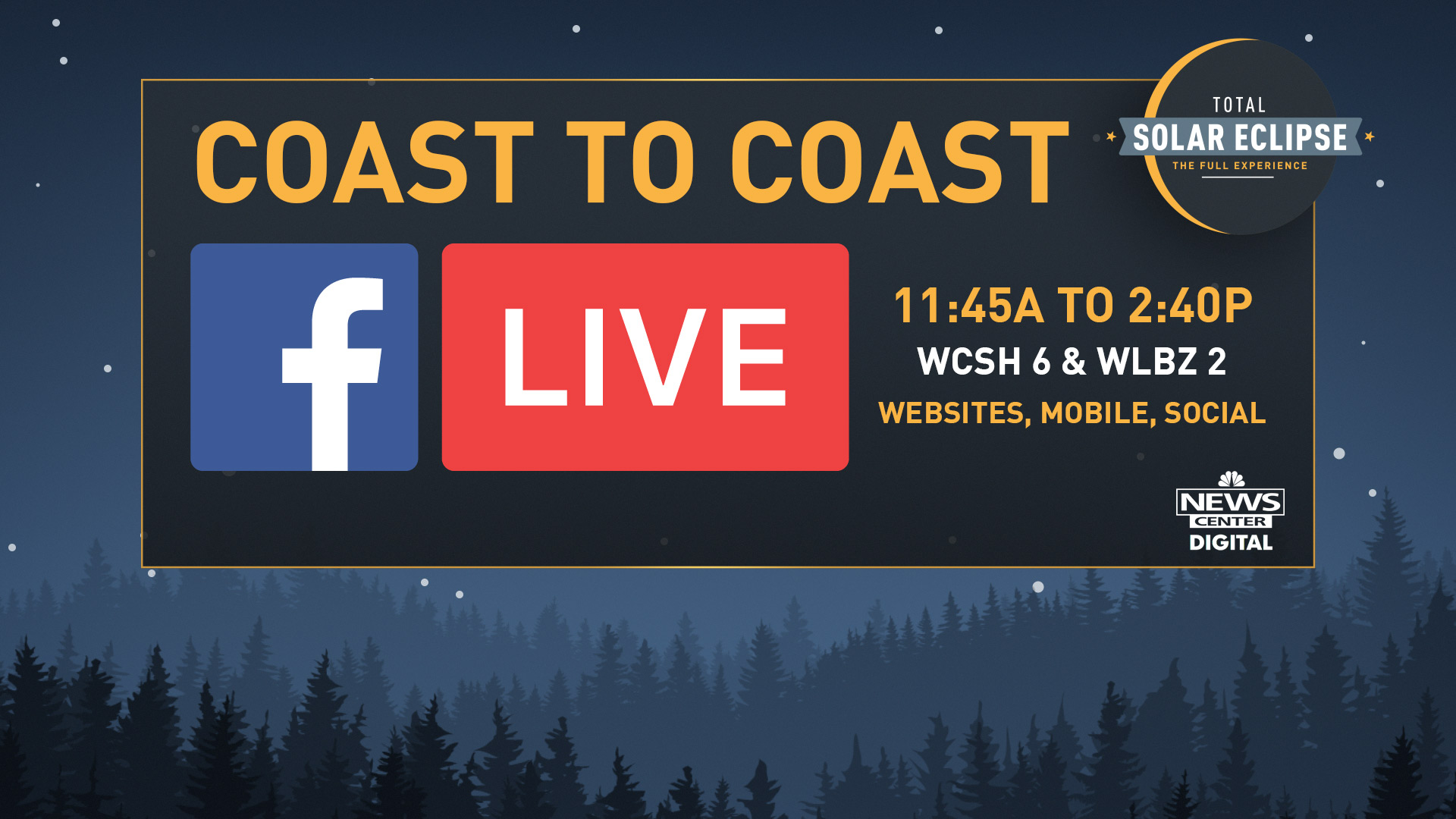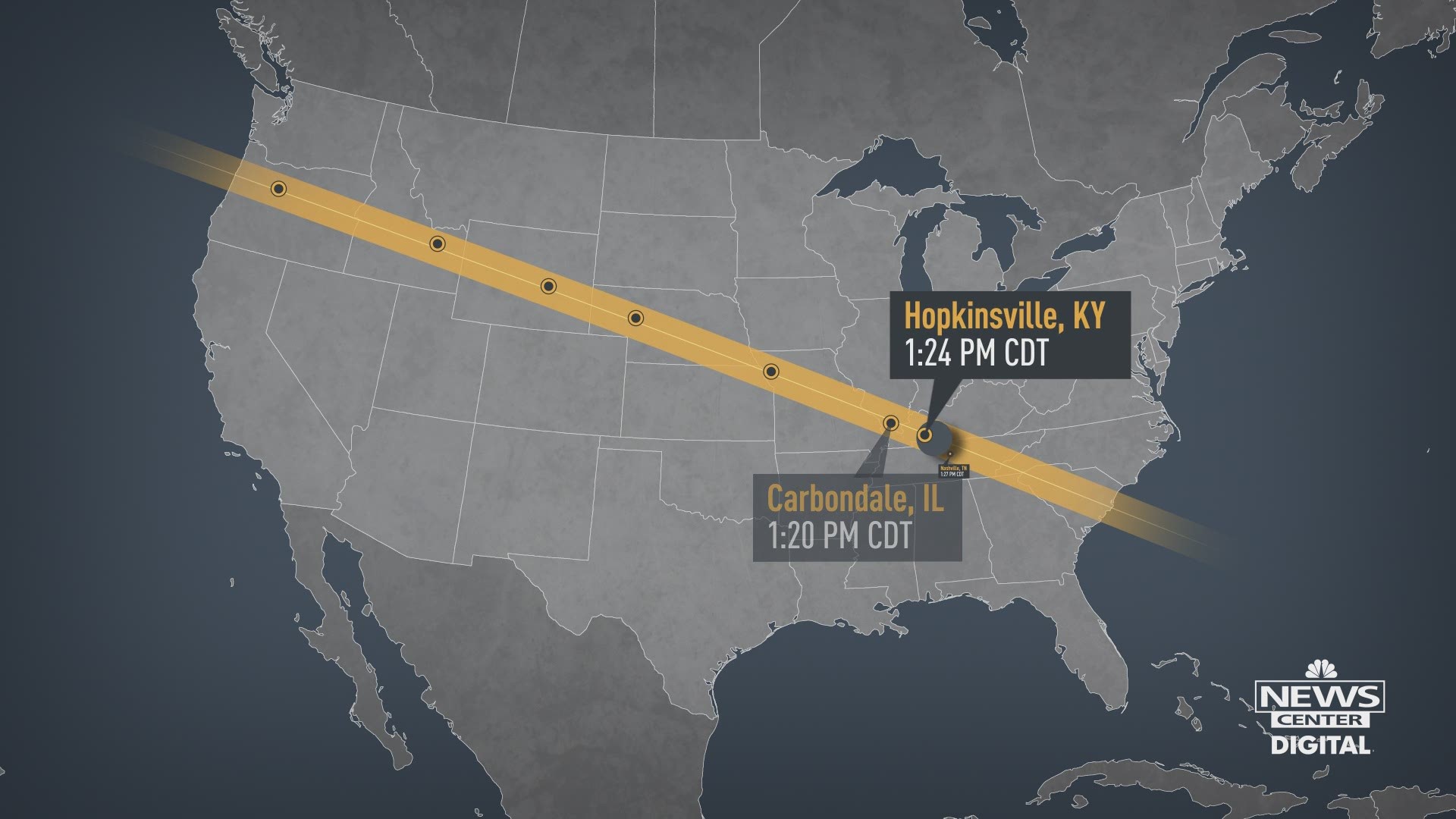PORTLAND, Maine (NEWS CENTER) - The day many have been anticipating for weeks and months is finally here. Monday will bring the first total solar eclipse to the United States since 1979, and the first coast-to-coast total eclipse since 1918.
Maine is not in the path of 'totality', or in the region where the moon will totally block the sun for about two minutes during the middle of the day Monday, turning daylight into darkness. In Maine, we will see a partial eclipse, with the moon blocking part of the sun.
It's important to emphasize that viewing the eclipse requires looking at the sun. Doing so for any length of time can cause damage to your eyes. Eclipse glasses have been flying off the shelves at local stores and can be difficult to find. However, NEWS CENTER put a "DIY" eclipse viewer to the test. Check out how to make one here.
The total eclipse will occur from Oregon through the middle of the country into South Carolina. Some cloudiness is expected along this path, which will cause disappointment for some who traveled to view the total eclipse. However, much of the path should be at least partially clear.
In Maine, the partial eclipse will begin at approximately 1:30 p.m., give or take a minute depending on where you live in the state.
The eclipse will max out around 2:45 p.m., when approximately half of the sun will become blocked by the moon. The eclipse will end just before 4:00 p.m.
Fortunately, weather will cooperate for us here in Maine, with a mostly sunny sky during the middle of the afternoon. There can be some patchy, passing clouds, but these should not be a major problem.
It's possible temperatures will level off - or even drop a degree or two - during the peak of the eclipse, which occurs near the time the high temperature for the day should occur!
If you are wishing to catch a glimpse of the total eclipse, one isn't too far away. April 8, 2024 will mark the next total solar eclipse to move through the United States, and its path will move over Maine!



